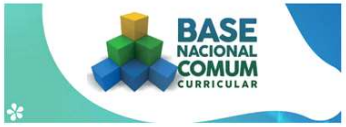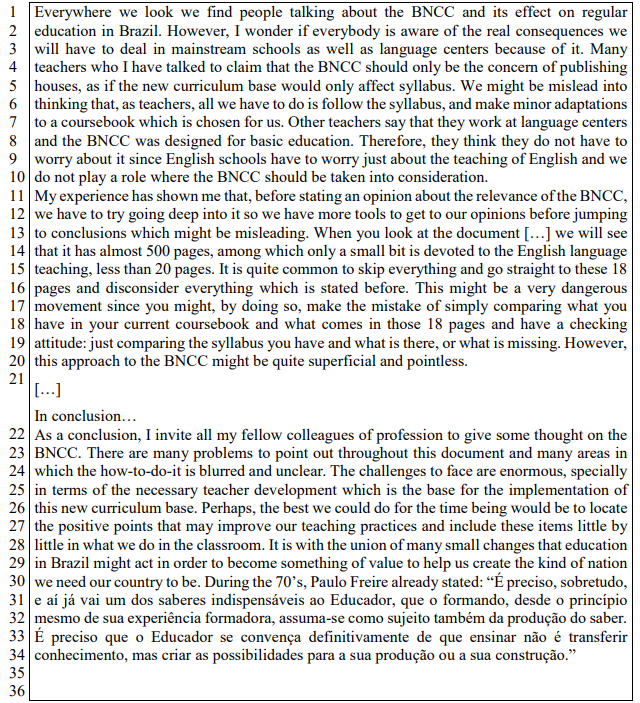Questões de Concurso
Sobre sinônimos | synonyms em inglês
Foram encontradas 1.298 questões
Future of jobs
A survey conducted ______ 1 the World Economic Forum and published in May 2023 reveals that approximately 25% of jobs will ______ 2 significant changes in the next five years.
The report indicates that by 2027, 69 million jobs
will be created, while 83 million jobs will be
eliminated, resulting in a ______
3 employment
decrease of 2%. The survey incorporates input
from over 800 companies that employ more than
11 million workers and utilizes a dataset of 673
million jobs. The report highlights technology and
digitalization as the catalysts for both job ______
4
and destruction.
Secretarial and clerical roles such as bank tellers and cashiers are expected to decline rapidly due to automation, while there will be a growing demand for experts in AI, machine learning, and cybersecurity.
Source (adapted): https://www.newsinlevels.com/products/future-of-jobs-level3/
Future of jobs
A survey conducted ______ 1 the World Economic Forum and published in May 2023 reveals that approximately 25% of jobs will ______ 2 significant changes in the next five years.
The report indicates that by 2027, 69 million jobs
will be created, while 83 million jobs will be
eliminated, resulting in a ______
3 employment
decrease of 2%. The survey incorporates input
from over 800 companies that employ more than
11 million workers and utilizes a dataset of 673
million jobs. The report highlights technology and
digitalization as the catalysts for both job ______
4
and destruction.
Secretarial and clerical roles such as bank tellers and cashiers are expected to decline rapidly due to automation, while there will be a growing demand for experts in AI, machine learning, and cybersecurity.
Source (adapted): https://www.newsinlevels.com/products/future-of-jobs-level3/
Two US banks collapse
Last week, Silicon Valley Bank failed, and it left customers in a tough spot as the government took ______ 1 .
The so-called bank run happened because there ______ 2 news that the bank couldn’t meet its deposit obligations. It means that it had invested the money in various things that weren’t making the money back. Typically, that’s the point where the Federal Deposit Insurance Corporation, ______ 3 insures deposits ______ 4 250,000 dollars, comes in. However, 98% of Silicon Valley Bank customers didn’t have 250,000 dollars but billions of dollars. The government announced that it would step in and secure the depositors, with US president Joe Biden ______ 5 that the US banking system was safe.
Shortly after the fall of Silicon Valley Bank, regulators closed New York-based Signature Bank, too, citing systemic risk. Experts said that these stories would continue repeating themselves because many corporations were overleveraged in dollar debt.
After the collapse, European banks lost 100 billion dollars in value in a week, and despite tough regulations that should make a similar banking failure in Europe unlikely, the contagion is accelerating.
Source: https://www.newsinlevels.com/products/two-usbanks-collapse-level-3/



Concerning grammar and semantics in text CG2A2, judge the following item.
The phrase “didn’t engage in physical activity” (in the
second sentence of the second paragraph) can be substituted
with were sedentary without altering the intended message
of the text.
Concerning grammar and semantics in text CG2A2, judge the following item.
The adverb “likely” (in the last sentence of the last
paragraph) is a synonym for certainly.
TEXT I – Tema: O papel da Língua Inglesa na BNCC
IS THE BNCC REALLY GOING TO AFFECT MY CLASSES?
(by Lúcia Rodrigues Alves)


(Adapted from: https://www.luciarodriguesalves.com.br/is-the-bncc-really-going-to-affect-my-classes/. Accessed on July 1 , 2023)
I. for the moment. II. for now. III. heretofore.
Choose the alternative that indicates the CORRECT option(s):

Based on the text above, judge the item.
“boosted” (l.36) means increased.

Based on the text above, judge the item.
‘unfolding’ (R.18) is the same as development.

Based on the text above, judge the item.
“surplus” (R.16) is synonymous with product.